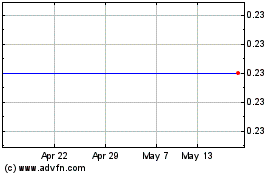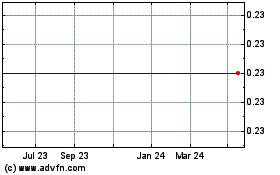Monopolies&Mergers - Stmnt Re BSkyB/Manchester Utd
December 09 1998 - 7:31AM
UK Regulatory
RNS No 8251u
MONOPOLIES & MERGERS COMMISSION
9th December 1998
BSKYB/MANCHESTER UNITED MERGER INQUIRY: MMC WRITES TO THE MAIN PARTIES
It is normal practice, following preliminary investigations in any inquiry,
for the MMC to send an "issues letter" to the main parties involved in an
investigation-in this case BSkyB and Manchester United.
This letter is always produced before the MMC has reached any firm conclusions
and is designed to highlight those matters which have been identified by the
investigating group for further consideration.
In this inquiry into the proposed BSkyB/Manchester United merger, no
conclusions have yet been reached by the MMC about whether the proposed merger
may be expected to operate against the public interest. No conclusions will
be reached until the report is submitted to the Secretary of State on 12 March
1999.
The issues letter is being made public to inform other parties interested in
making submissions and to enable them to tell the MMC if they think any
important points have been missed.
A copy is attached. The letter may also be obtained from the MMC web site:
www.open.gov.uk/mmc/under2.htm or in writing, from: David Peel, The Reference
Secretary (BSkyB/Manchester United), Monopolies and Mergers Commission, Room
503, New Court, 48 Carey Street, London, WC2A 2JT.
BSKYB/MANCHESTER UNITED MERGER INQUIRY
1. The MMC Group conducting this inquiry is of the view that arrangements
are in contemplation which, if carried into effect, will result in the
creation of a merger situation qualifying for investigation. I am writing to
give you an indication of the issues which the Group are likely to raise with
you at the forthcoming hearing.
2. The Group believes that it would be beneficial to the inquiry to make
public its thinking on what issues it has to address, to inform third parties
interested in making submissions and to enable them to tell us if they think
that important points have been missed. It has therefore decided to publish
this letter.
The markets
3. The Group will wish to ask you about the existing markets and the effects
of possible developments including:
(a) The nature, extent and definition of the market(s) within which BSkyB
operates, including both the wholesale and retail supply of TV channels
and pay-per-view services.
(b) The nature, extent and definition of the market(s) within which
Manchester United operates.
(c) The links between these markets, including the sale of broadcasting
rights.
(d) Whether BSkyB and/or Manchester United currently have any
market power and, if so its nature, extent and consequences.
(e) Any other relevant competition issues affecting the existing markets.
(f) The effects of the following on the market:
- the alternative scenarios of a continuation of collective selling of
broadcasting rights on the one hand and the introduction of
individual selling on the other;
- the current and future development of digital broadcasting;
- the current and future development of pay-per-view services;
- the ownership of football clubs by other broadcasters and links
between broadcasters; and
- possible changes to the regulation or organisation of football in
England and Europe.
Public interest issues
4. The Group will wish to explore the reasons for the proposed merger and to
ask you about its benefits.
5. It will wish to put questions to you on the effect of the merger on
competition and in particular on the following points:
(a) In the context of collective selling of TV rights, whether the merger
would give BSkyB an advantage over other broadcasters bidding for the
rights by,
- giving BSkyB influence over the decision of the Premier
League on the sale of the rights;
- giving BSkyB access to information not available to others;
- discouraging others from bidding or increasing the costs of their
doing so; and
- encouraging BSkyB to bid more aggressively.
(b) Whether a threat by Manchester United to leave the Premier League, if for
example BSkyB failed to win the League's TV rights, would be a credible
one.
(c) Whether a threat by the Premier League to expel Manchester United, if for
example it refused to abide by a League decision on the collective sale of
TV rights, would be a credible one.
(d) What the impact of the merger would be on any plans by the Premier League to
set up its own TV channel.
(e) In the event of TV rights being sold individually by Premier League clubs,
whether the merger would give BSkyB an advantage over rival broadcasters by,
for example, enabling it to prevent any competitor from buying rights to
Manchester United games and using its monopoly over these games to persuade
other premier league clubs to sell it their TV rights.
(f) What effect the proposed merger would have on the wholesale and retail
supply of TV channels. Whether it would, in general, enhance BSkyB's
position in the live broadcasting of sports and, in particular, increase the
incentive and ability of BSkyB to:
- block or limit the supply of live football matches to rival
broadcasters;
- block or limit the supply of highlights or recorded games to rival
broad casters; and
- price its sports channels in ways which reduce the ability of other
broadcasters to compete at the wholesale or retail level or both.
(g) Whether a merged BSkyB/Manchester United would have a disproportionate
influence over the rules and decisions of the Premier League (and other football
associations) and, if so, what effect this might have on these rules and
decisions, for example, the rules on club ownership and decisions about the
number of matches to be broadcast live.
(h) Whether the merger, if it went ahead, would induce other broadcasters to
acquire football clubs and what effect this would have on competition.
(i) Whether the merger would increase barriers to entry or barriers to growth in
any part of the market.
(j) Whether the merger would enable BSkyB to block or limit access to Manchester
United matches, staff and players by media (for example newspapers) not owned by
or allied with companies related to BSkyB.
(k) Whether the merger would have any effect on the operation of Manchester
United TV.
6. The Group will also wish to seek your views on the possible effects of the
proposed merger on the interests of consumers. In particular:
(a) Whether the merger would lead to an increase in Manchester United's gate
prices, or the prices of any of BSkyB's TV channels or both.
(b) Whether the merger would lead to changes in the prices of or selling
practices for Manchester United's merchandise.
(c) Whether the merger would lead to or hasten the introduction of pay-per- view
services and whether this would increase the cost of watching top quality
football matches on television.
(d) Whether the merger would reduce the access of consumers to televised
football by:
- removing Premier League highlights and/or Manchester United European
competition games from free-to-air television; and
- inducing mergers between other broadcasters and football clubs, resulting in a
need to purchase several pay TV channels in order to view a range of Premier
League matches.
(e) Whether the merger would lead to a rescheduling of matches in the interests
of broadcasters, with the live matches being timed to suit TV audiences,
possibly abroad, or advertisers to the detriment of those wishing to attend
matches.
(f) Whether, in the interests of group profitability or cash flow, the merger
would lead to reduced expenditure on players and/or investment by Manchester
United, to the detriment of its sporting performance.
(g) Conversely, whether the resources of the merged group would enable it to
invest more heavily than any other football club, enabling Manchester United to
win consistently, to the detriment of an exciting sporting competition.
(h) Whether there would be a conflict of interest between Manchester United's
wish to win as many matches as possible and BskyB's wish to maintain an exciting
sporting competition with uncertainty about winners.
(i) Whether the merger would, by inducing similar mergers between broadcasters
and football clubs, exacerbate the gap between wealthy clubs and the rest,
decreasing the ability of the latter to mount an effective challenge and thus
reducing the excitement of football for many supporters.
(j) Whether other aspects of football, for example the organisation of leagues
both nationally and internationally, the selection of players and the location
of grounds, would tend to be dominated by broadcasting interests rather than the
interests of supporters and whether this would be against the public interest.
7. It has been suggested that certain other aspects of football could be
affected by the merger and the Group may wish to ask you about these. These
issues include:
(a) Whether a club owned by a broadcaster could undermine the authority of
football's governing bodies and league organisers by refusing to accept their
rulings when they were not in the interests of the club or its owner.
(b) Whether the merger and its consequentials would lead to English football
being run by people with no real interest in the game itself.
(c) Whether Manchester United supporters would lose such influence as they have
over the club.
(d) Whether News International has the ability materially to influence BSkyB and
whether this raises public interest issues additional to those identified in
this letter.
8. The Group has, of course, not yet reached any conclusions about whether the
merger might be expected to operate against the public interest. But if it were
to do so it would need to make recommendations to the Secretary of State on how
to remedy the adverse effects identified. It may therefore wish to ask you about
hypothetical remedies.
END
MSCDLMGZMLLLRMM
Management Consulting (LSE:MMC)
Historical Stock Chart
From Jun 2024 to Jul 2024

Management Consulting (LSE:MMC)
Historical Stock Chart
From Jul 2023 to Jul 2024
